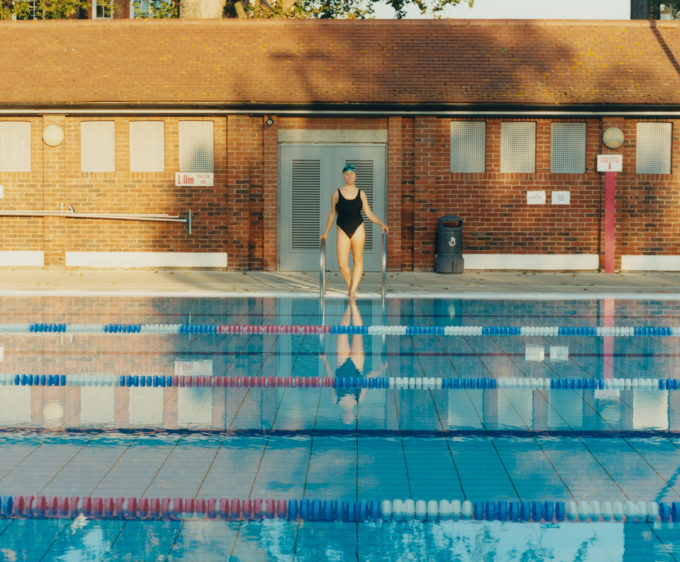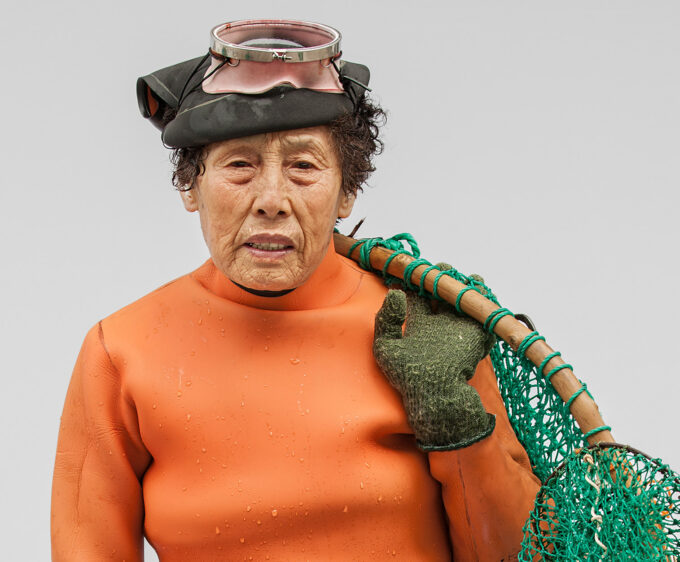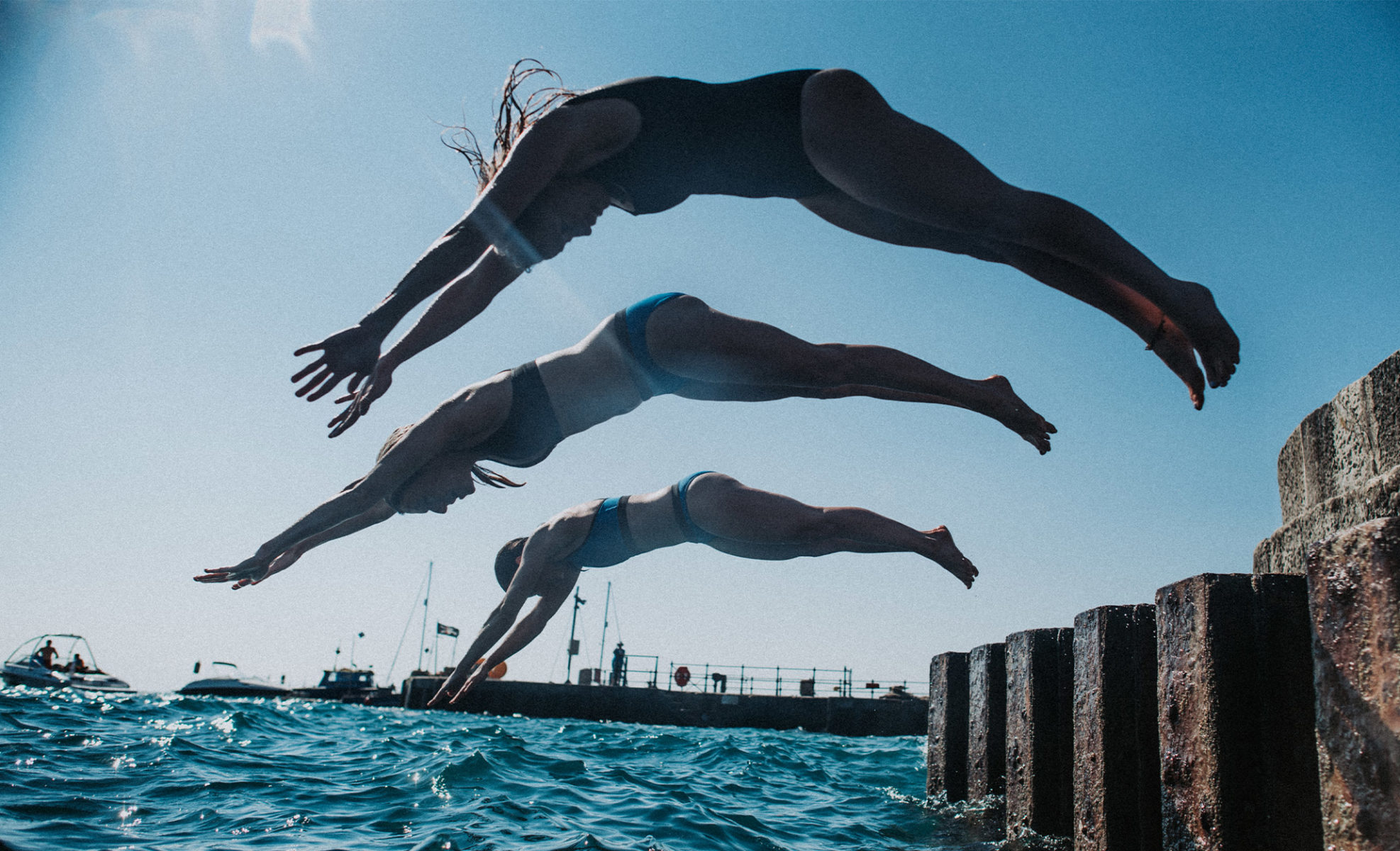
Wild Thing!
The Devon entrepreneur transforming ghost fishing nets into sustainable and luxury swimwear. Meet Helen Lofts: former hockey player, sea dipper and founder of Davy J
By Charlotte Moore
Photography by Davy J
With almost 70% of those under 35 citing that sustainability is important to them and they’re happy to pay more for ethical clothing, the swimsuit industry is playing catch up. While most swimsuits are made of mass-produced plastic based materials, Davy J is doing something different. Helen Lofts, ethical entrepreneur and founder of Davy J, explains that their commitment to sustainability is a key part of the brand’s DNA, “Sustainability was always at the core of what we were going to do. Creating something that is really made to last is essential.”
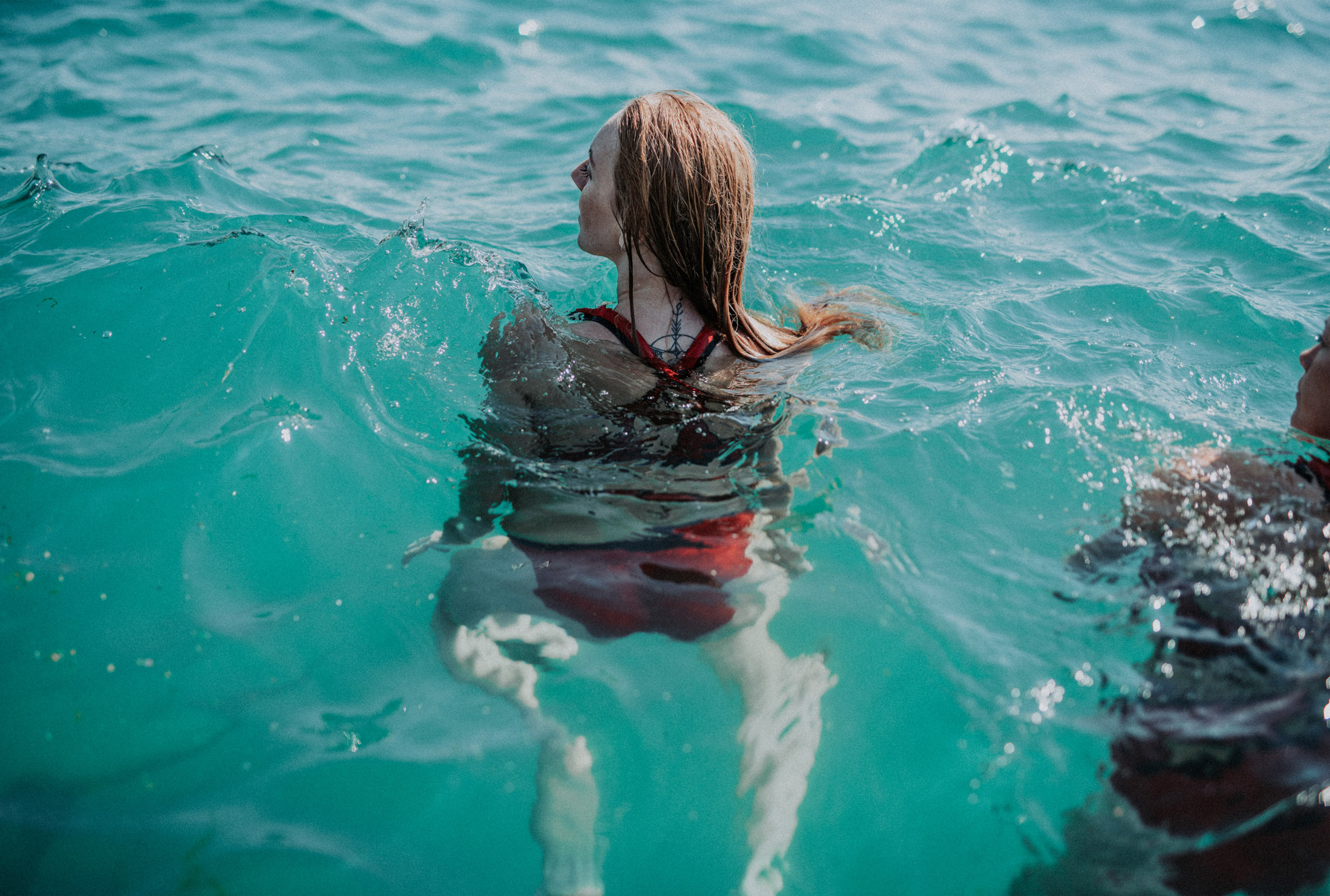
Growing up by the sea, Helen has always been drawn to the waves. “Honestly, I can’t drive past water without this overwhelming urge to just dive in,” she laughs. On land, Helen showed a strong commitment to sport from an early age. “Sport has always been a part of my life, as long as I can remember. I started out running competitively and then moved onto hockey. Sport has just always been my grounding.” And this grounding, she says, has become an essential part of her life and business. “People always used to comment on how ‘lucky I was,’ but it wasn’t luck, I worked really hard to get better. And, I think that work ethic has been an essential part of Davy J. Just like sport, I don’t expect instant results, I just have to keep going.”
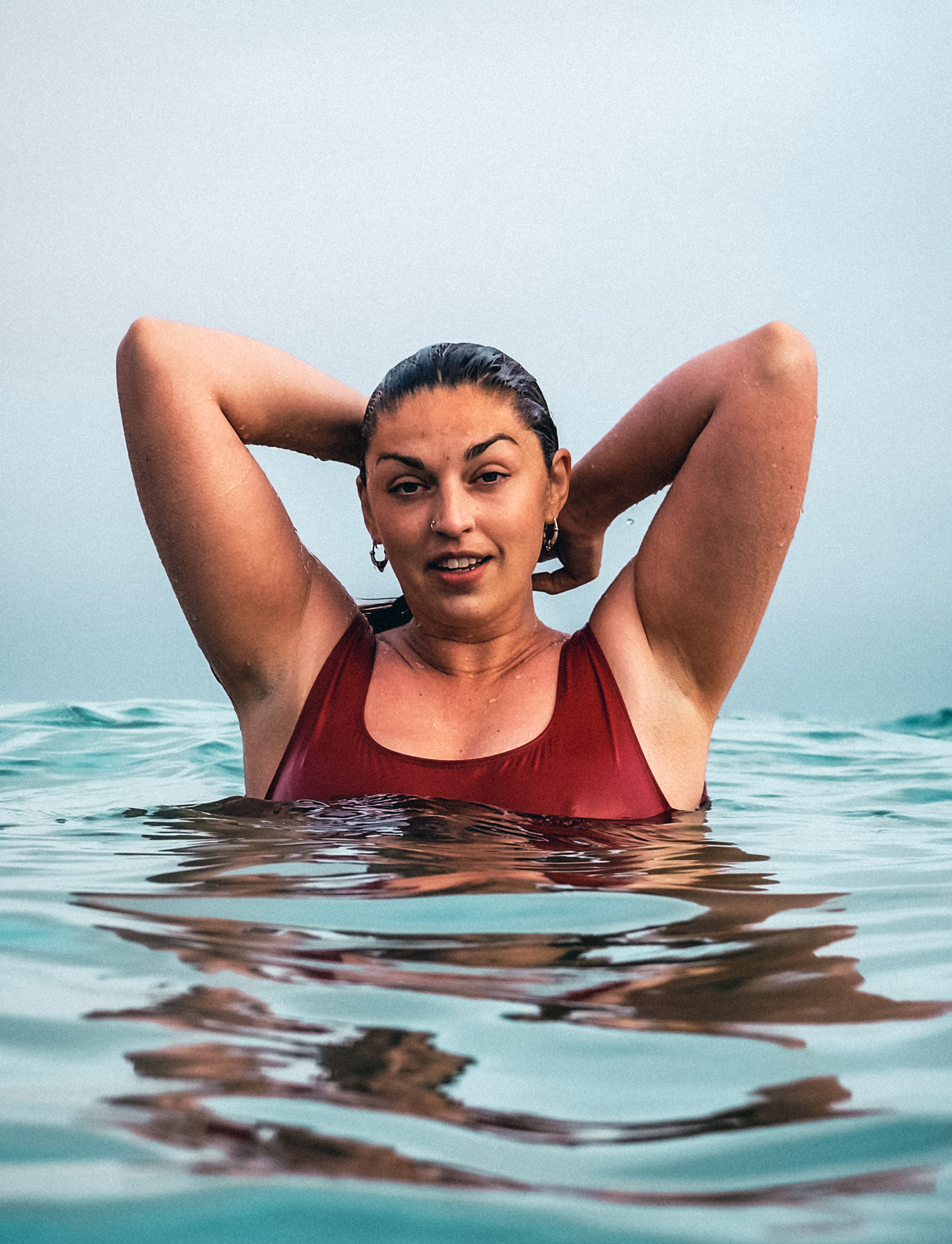
We start by talking about the business namesake, Davy Jones’ Locker. “Firstly, I wanted a name that was a bit more androgynous and a little less feminine. And, especially as our swimsuits are actually made using recycled materials, such as ghost fishing nets at the bottom of the sea, it just felt serendipitous.”
In fact, this commitment to recycled materials is at the core of Davy J’s ethos, with entire collections crafted from regenerated ECONYL® yarn, made from waste. Through a collaboration with The Healthy Seas Initiative, ghost fishing nets are actively collected by volunteer divers and fed into the regeneration process to prevent damage to wildlife and ecosystems. For every 100 Davy J suits sold, at least 18 kg of waste is regenerated, of which 4.5kg are fishing nets. “It’s an interesting design challenge but I knew what I wanted from our products. Our swimsuits needed to be sustainable, durable, and I wanted them to feel really luxurious as well as being fit for purpose.”
Sustainable
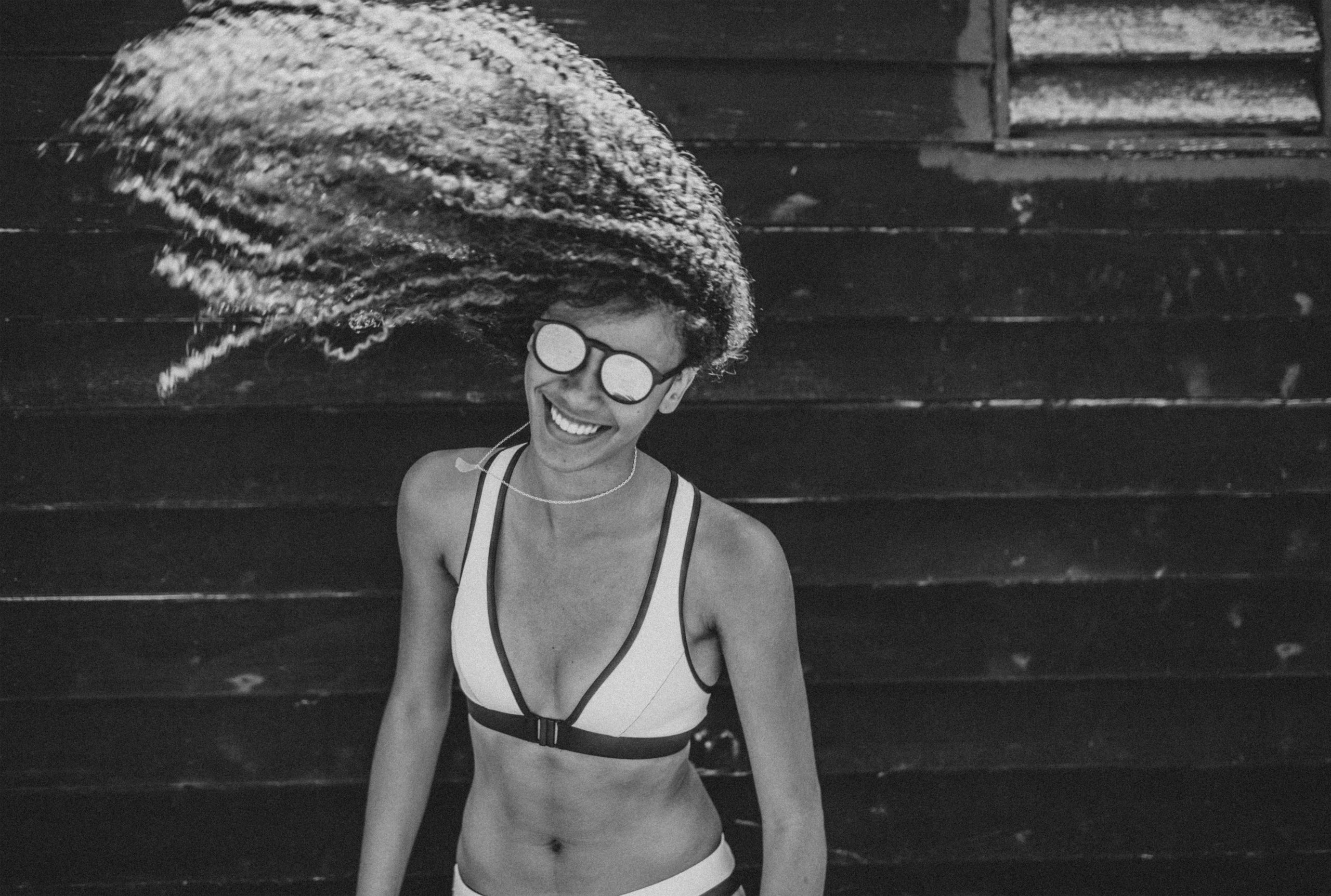
With more and more brands being critiqued with the way that they frame women within swimsuit advertising, a shift towards more practical swimwear has long been necessary. Helen explains: “I want our customers to look great, feel comfortable and know the pieces will last a long time.” This decision to focus on the kinetic over the aesthetic is a common theme for her. “Durability is essential for me – not just for the sustainability element. Each piece has to work when you’re paddleboarding, wild swimming or even jumping off a cliff. They’re designed for the people that use them.”
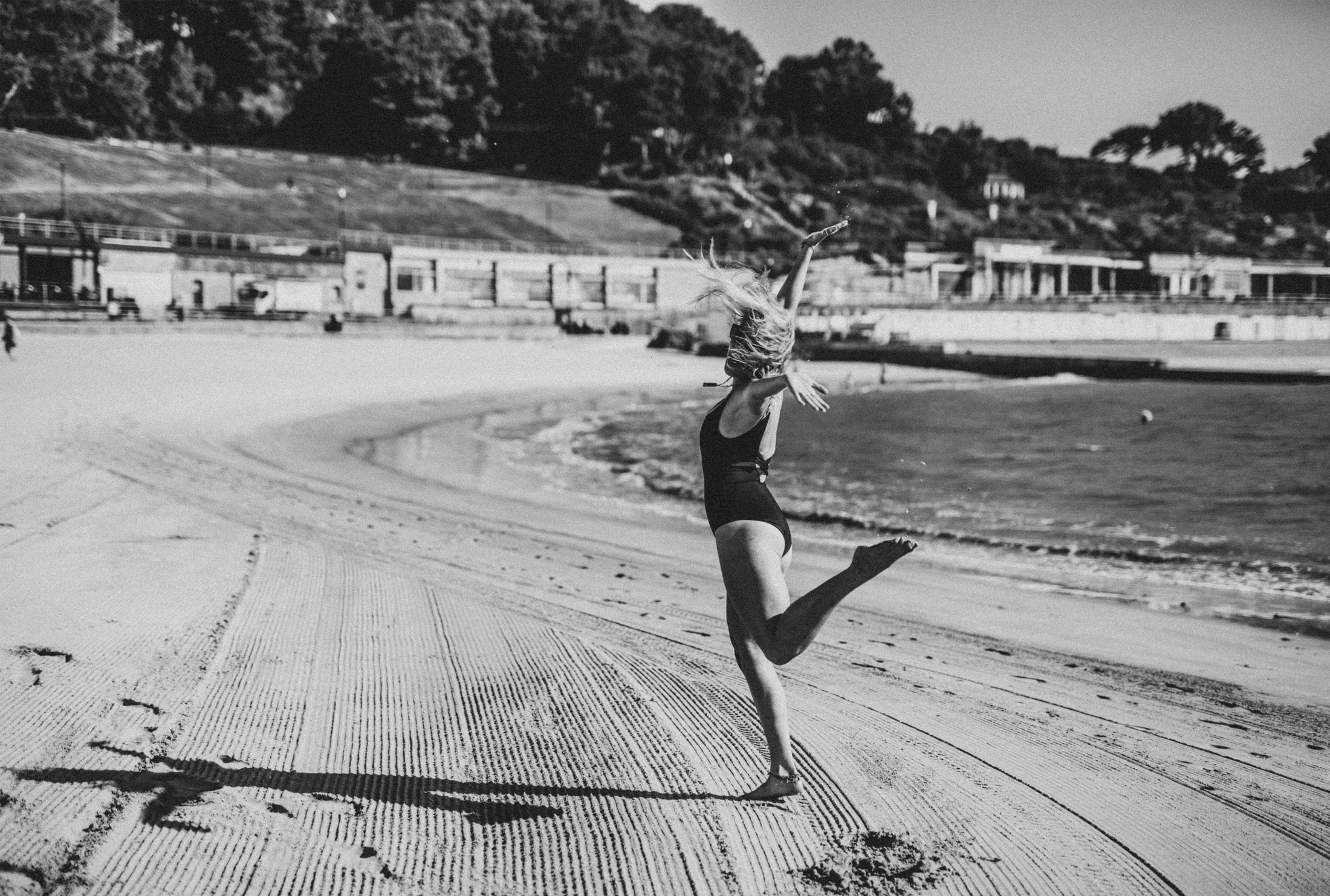
Community
Helen has also been keen to focus on capturing movement in every campaign, aiming to stand out from the crowd of static swimwear shoots in studios or lounging on a beach. Davy J sells movement, activity and an outdoor lifestyle – not appearances. “The key is that Davy J is not just about selling swimwear. It’s about a love for the ocean. I wanted to encourage other women to enjoy and feel the benefits. We’re so used to these highly sexualised images, I really want every photo to be aspirational but still relatable.” As such, images for the adverts are often modelled by community volunteers. “I normally just put a call out and I’ll have a few people reply saying ‘I’ll do it!’ We all just have a really fun day out in the water. Everyone gets to know each other and it’s great to see the pieces used in the real world.”
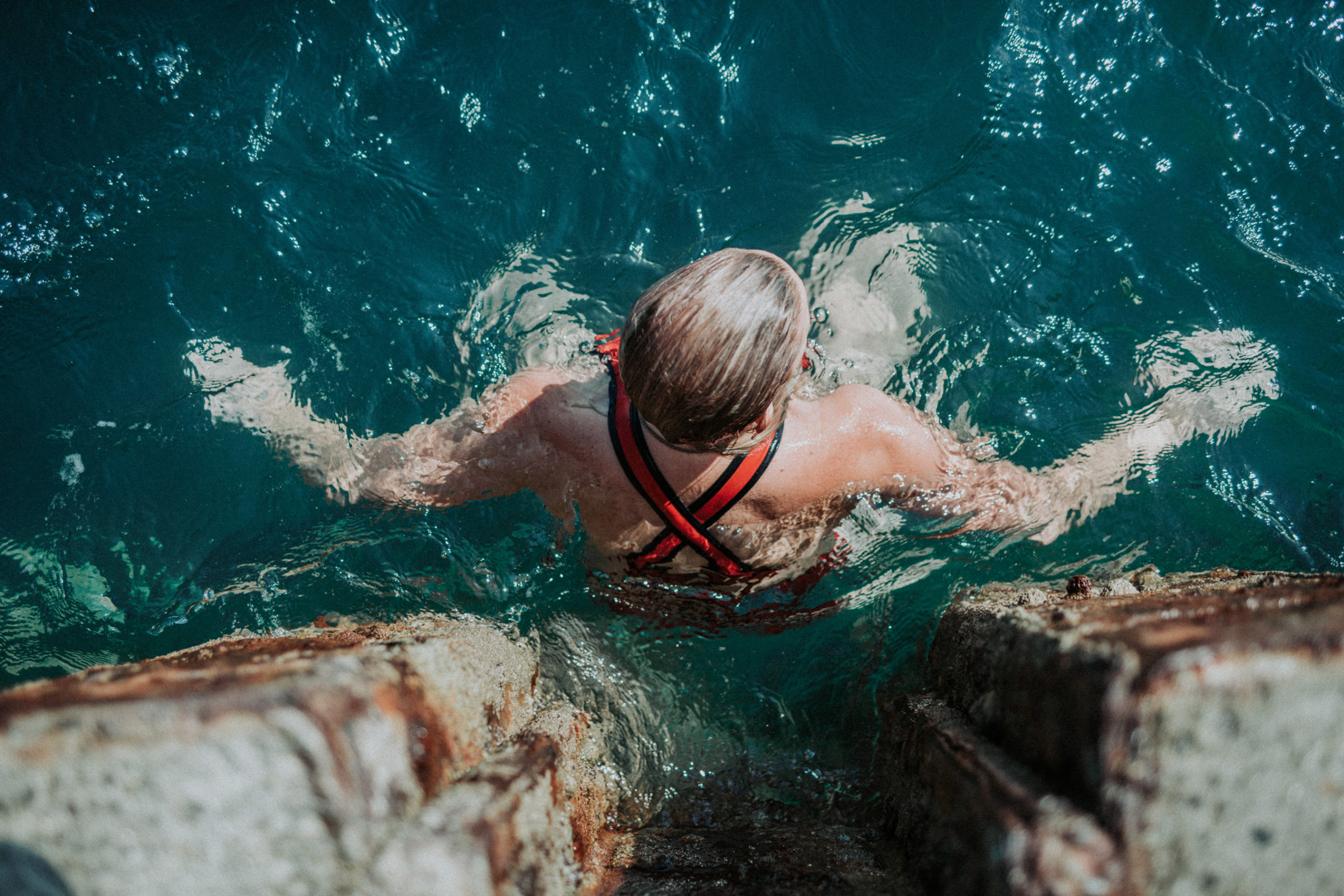
Even in the frosty months, Helen can be found dipping and wild swimming. “It’s just become such a big part of my life. I know that when I haven’t been in the water I can just feel it. There are a lot of studies that talk about the shock of cold water on the body and that it can help manage stress levels. Running a business on my own means that I’m always interested in stress relief!”
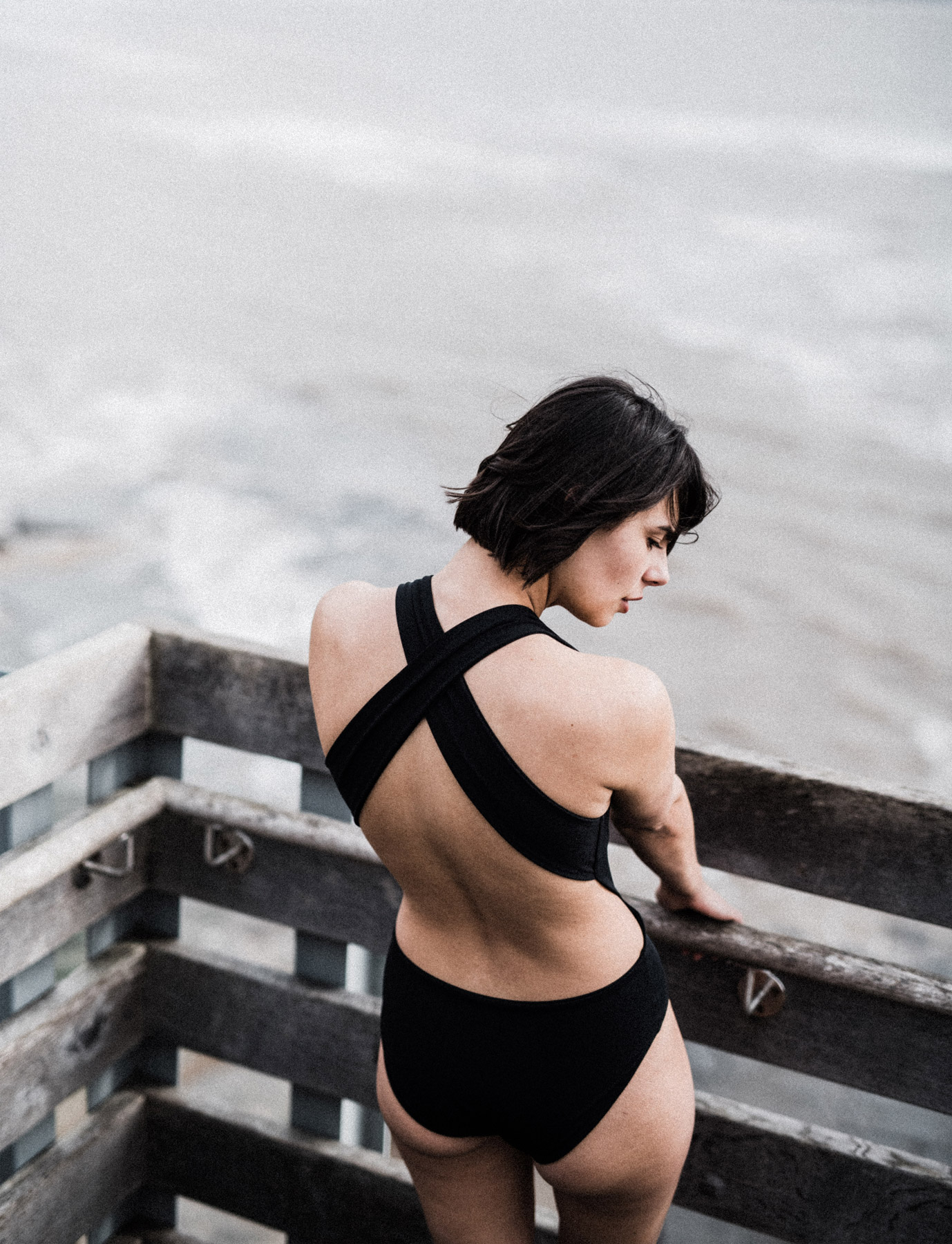
I ask her for any tips to get started. “Don’t start in the winter!” she laughs. “It’s the worst time of the year for it – far too cold if you’re not used to the water. Start in summer, somewhere safe and sensible and ease your way through the seasons.” I comment that I’ve always wanted to try, but I’m not a strong swimmer. “You know what, neither am I. When we hear ‘sport,’ we think about competition, and that’s the antithesis to what getting in the water is about. It’s about community; you just do what you can, feel the cold and have a giggle!”
Helen’s love for the outdoors is infectious. We talk about the cult community of watersports enthusiasts who buy Davy J products. “We send each piece out to be put through the wringer for us. I think it can be tough to figure out what to wear on a paddleboard, but we’ve got a set of flexible long-sleeved tops that blur the line between wetsuit and swimsuit. It’s a nice middle ground. Our first run sold out within a few days.”
KINETIC
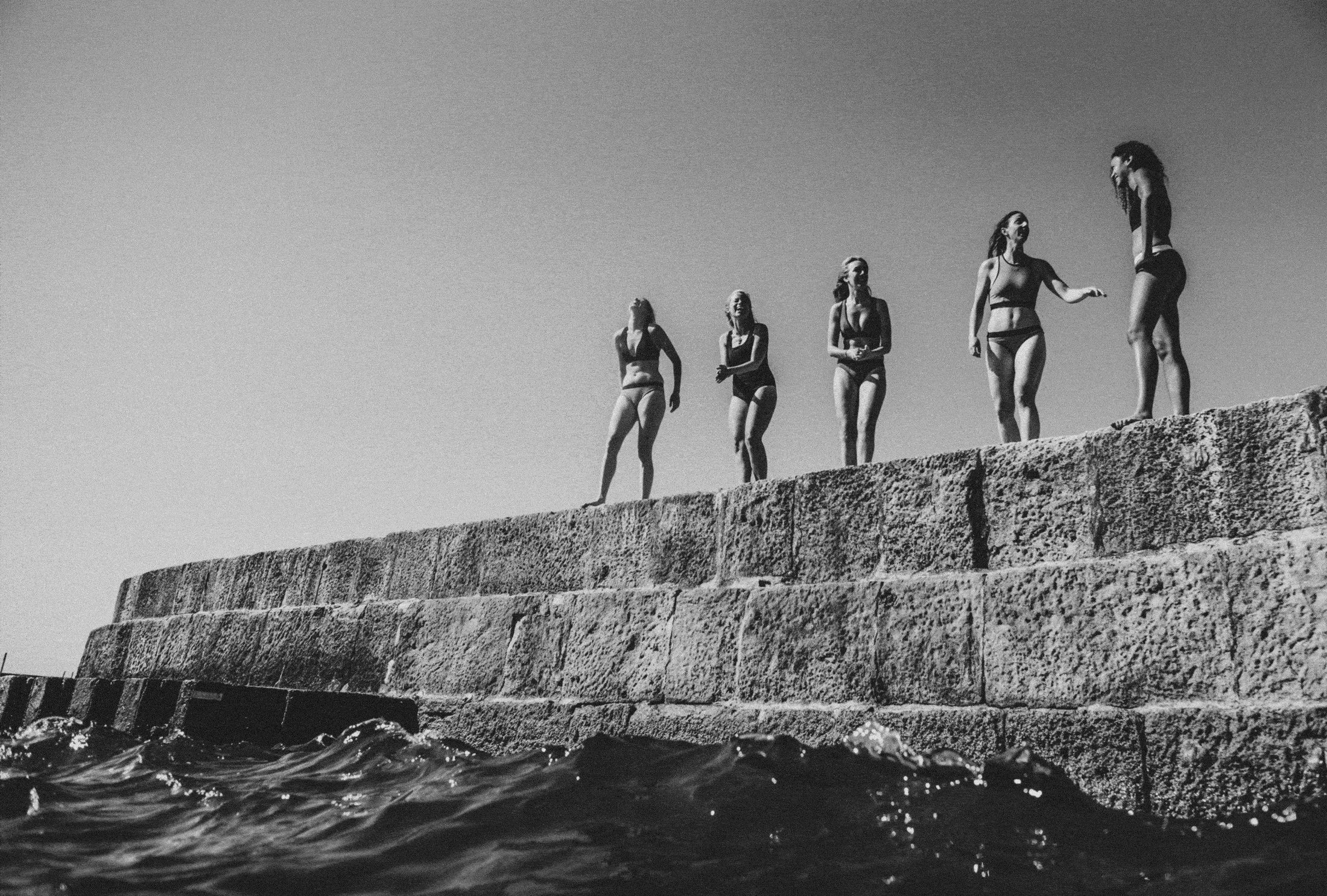
So, what’s next for Davy J? “We’re continuing to grow our community. They respect that we’re an authentic voice; we truly are the people we create and design for. And this works so well on a referral basis because our customers share our story with their friends,” Helen added: “But most of all, we just want to keep creating interesting swimwear that’s made to last.”
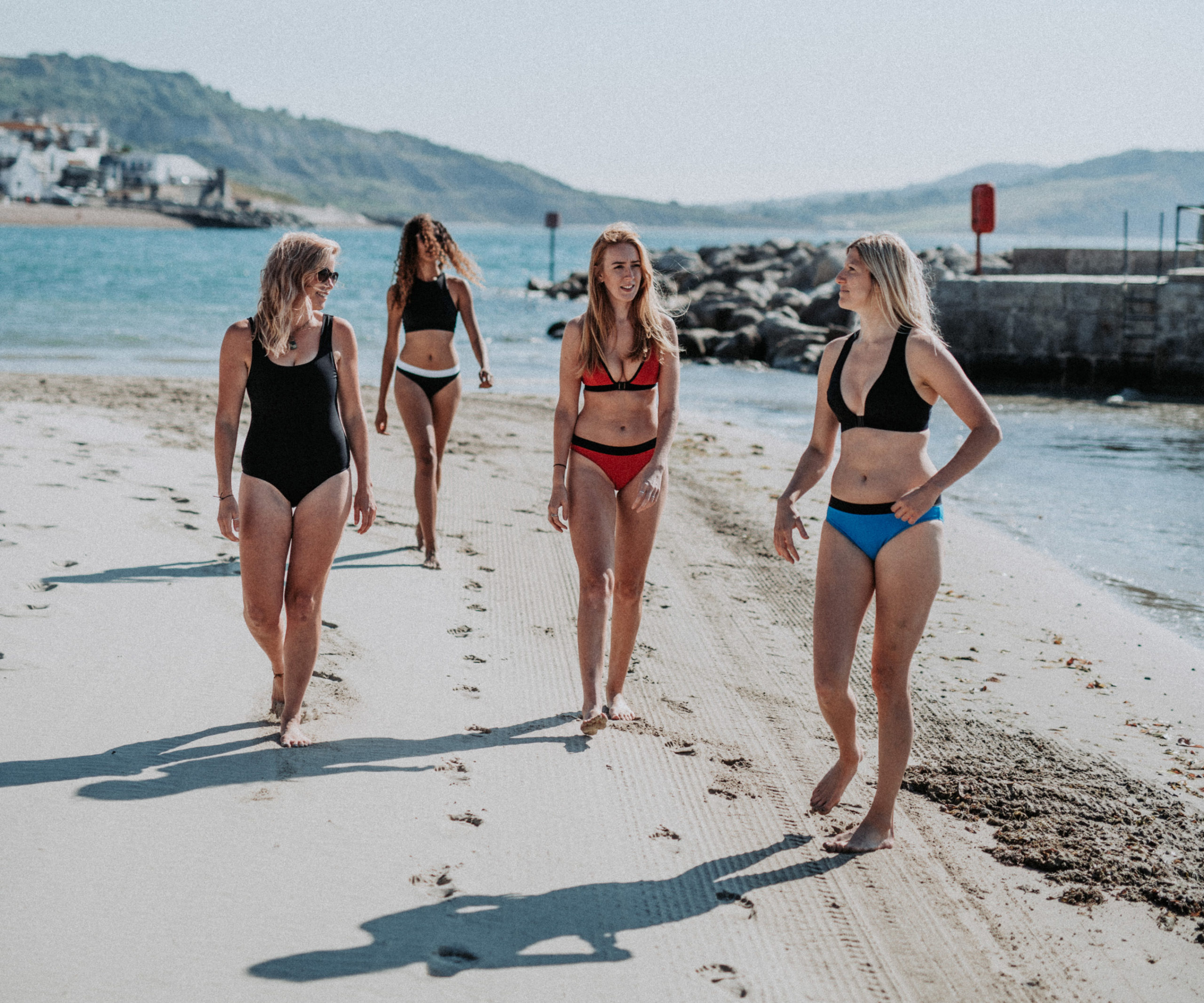
Further information, visit: Davy J
To find out more about wild water swimming, click here.
Editorial Design Root

